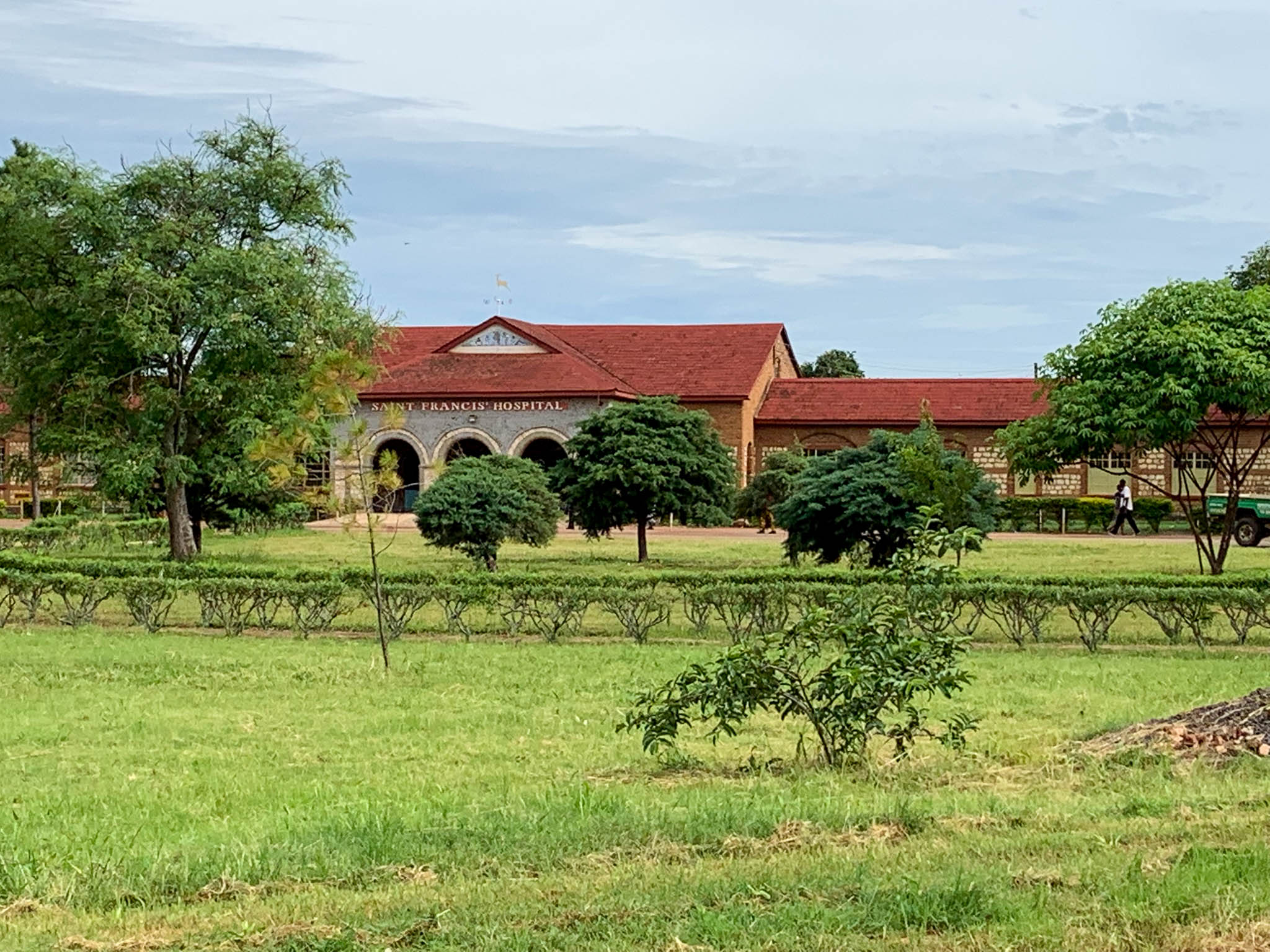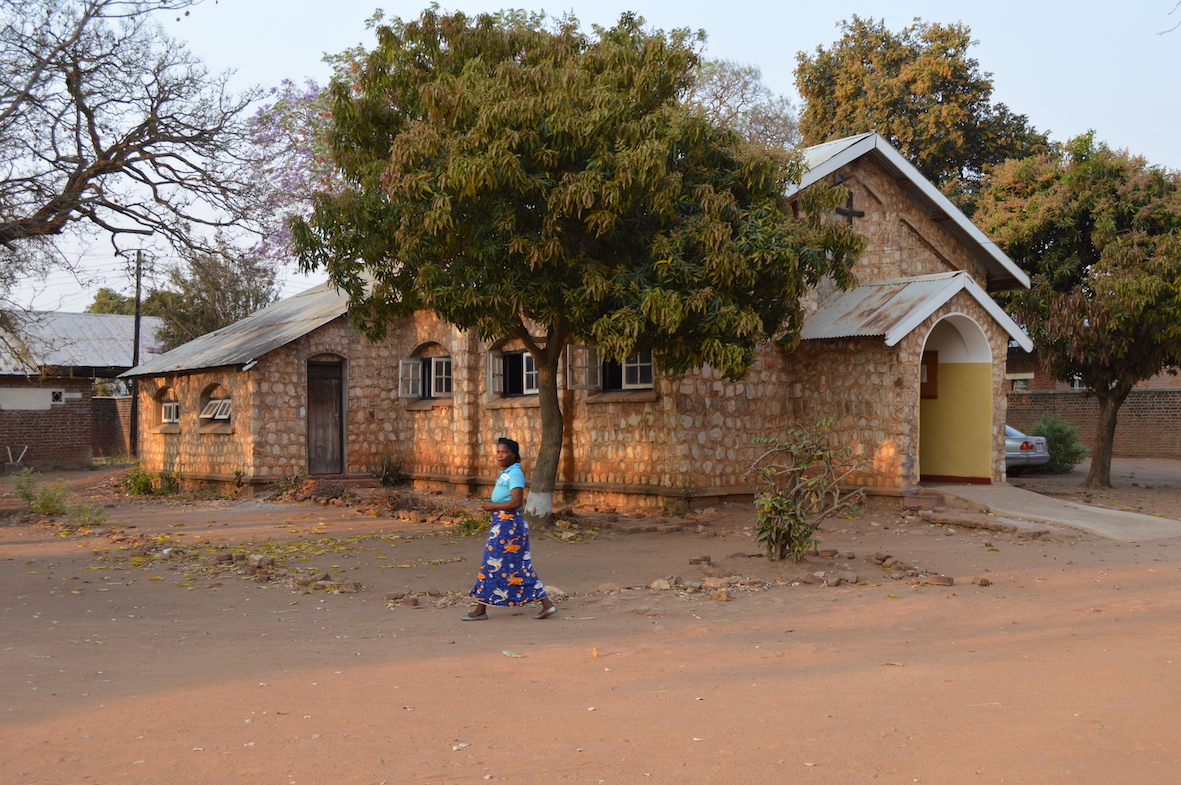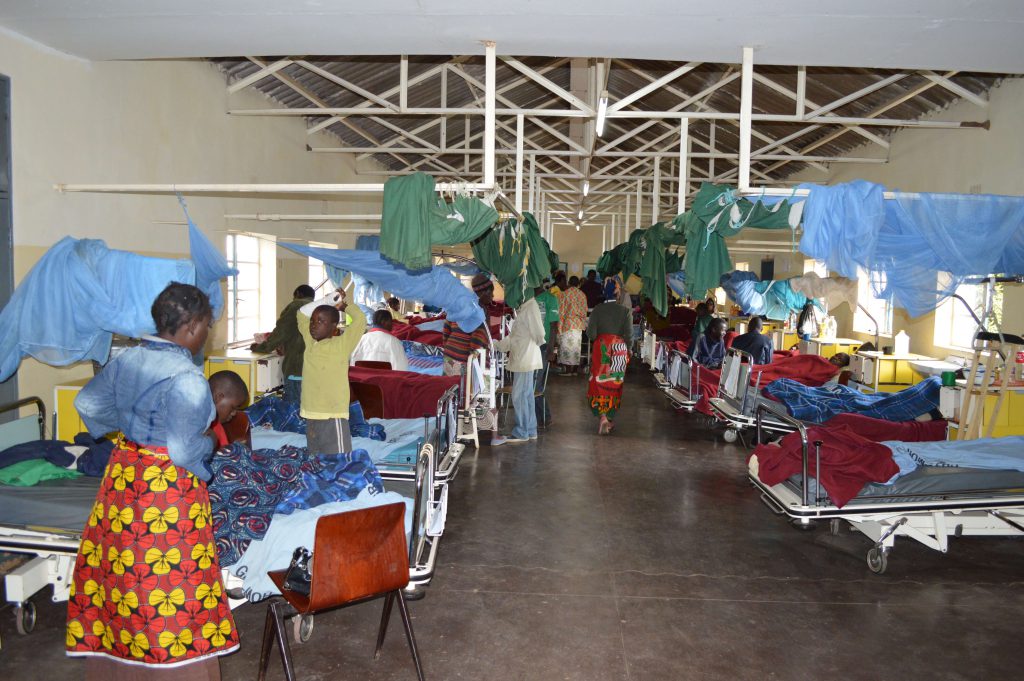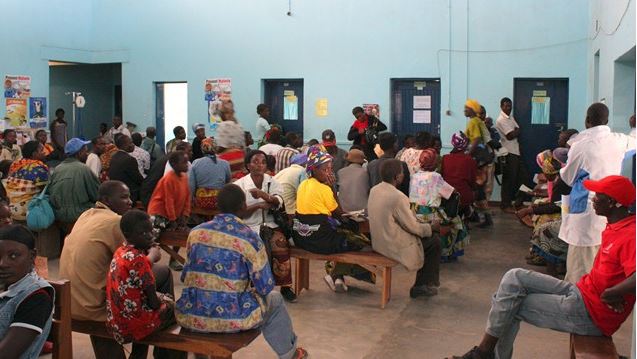St Francis’ Hospital was founded in 1948 by the Revd Dr Francis Trefusis, a priest, a doctor and an employee of the Anglican Diocese of Northern Rhodesia. The site was chosen to be near to Katete Boma, by the Paramount Chief Gawa Undi together with the local chief Mbang’ombe (many cows), the British Provincial Commissioner, Mr Ronald Bush and the Head of the Anglican Centre (50 kms to the north), Fr James Robertson and Fr Trefusis. They knew that this site would become the main route between the capitals: Lusaka (Zambia) and Lilongwe (Malawi). From Katete, there is a branch road to Tete on the Zambezi river in Mozambique, which is now becoming important.
The Hospital is located near Katete off the Great East Road in the Eastern Province of Zambia about 500kms east of Lusaka. In relation to Chipata, the Provincial city, the Hospital is 85km south west. It is situated on plateau country at 975m with hills, streams and an ideal climate – cool much of the year.
St Francis’ Hospital is a large and busy Church Administered Hospital serving the local population of Katete District of over 200,000 people. It is a general hospital providing third level health services for the population in Katete and beyond. It serves a population of approximately 1 million people: about half of the Eastern Province, the other half being served by Chipata Central Hospital. Patients from Mozambique are also seen.

We are especially focused on providing treatment to the most vulnerable in society and training for health professionals.

The hospital is fully integrated into the Zambian Health Service and part funded by the Zambian Government, but also receives funding via the Anglican and Catholic Churches and from overseas support groups in the Netherlands and the U.K. It has a predominantly Zambian staff of 400, but also uses volunteers from overseas to compensate for the national shortage of clinical staff.
The Hospital provides services in Medical, Obstetrics and Gynaecology, Surgery, Ophthalmology and Paediatrics. It also provides advanced specialized healthcare to patients in Orthopaedic Surgery, Obstetric & Fistula, Urology, Plastic and Cosmetic Surgery by visiting specialist Doctors. The other services provided by the Hospital include Laboratory, Dental, Radiology, Physiotherapy, Optometry, Cervical Cancer Screening, Gender Based Violence Survivor Support (GBV), Fistula and HIV/AIDS services.


Accidents and injuries are common, and account for the largest proportion of admissions, with Malaria and HIV/AIDS following close behind. There are around 22,608 Admissions a year (62 per day) – reaching a peak during the malaria season (February to April), when an average of 30 children are admitted every day.
The General Outpatient Department is the main point of access to the hospital’s services for most patients. Nearly 100,000 people are seen and treated annually (on average, 255 per day). There are specialist clinics in Gynaecology, General Surgery, Medicine, Paediatrics and TB. The “Sandy Logie” HIV/AIDS clinic now runs 5 days per week: 5,148,000 tablets of Cotrimoxazole (a prophylactic drug given to patients with HIV) were dispensed in 2010 alone. Clinical officers also run a dental service and an eye clinic.


Paramedical services include physiotherapy, X-ray, laboratory and pharmacy. The HIV/AIDS service provides pre and post test counselling and runs a programme of community based education and preventative activities as well as support for people living with HIV/AIDS.
There is at St Francis’ Hospital, a Nursing College with four programmes: Registered Nursing, Public Health Nursing, Midwifery and the abridged programme for Enrolled to Registered Nurse conversion. The Hospital also hosts medical, nursing, clinical officer and paramedical students from within and outside the country for placement in various fields.
St Francis has provided part of the training for the specialist qualification in Zambia for Surgery, Obstetrics and Gynaecology at the University of Zambia since the late 1970s.
Now it is one of five hospitals chosen by the Health Professions Council of Zambia to provide an official training centre for Interns (18 months for those trained in Zambia, 2 years for those trained in Russia). It is the only church-administered hospital chosen.
Generally, there has been a steady increase in the number of patients, especially self-referrals from outside the district.